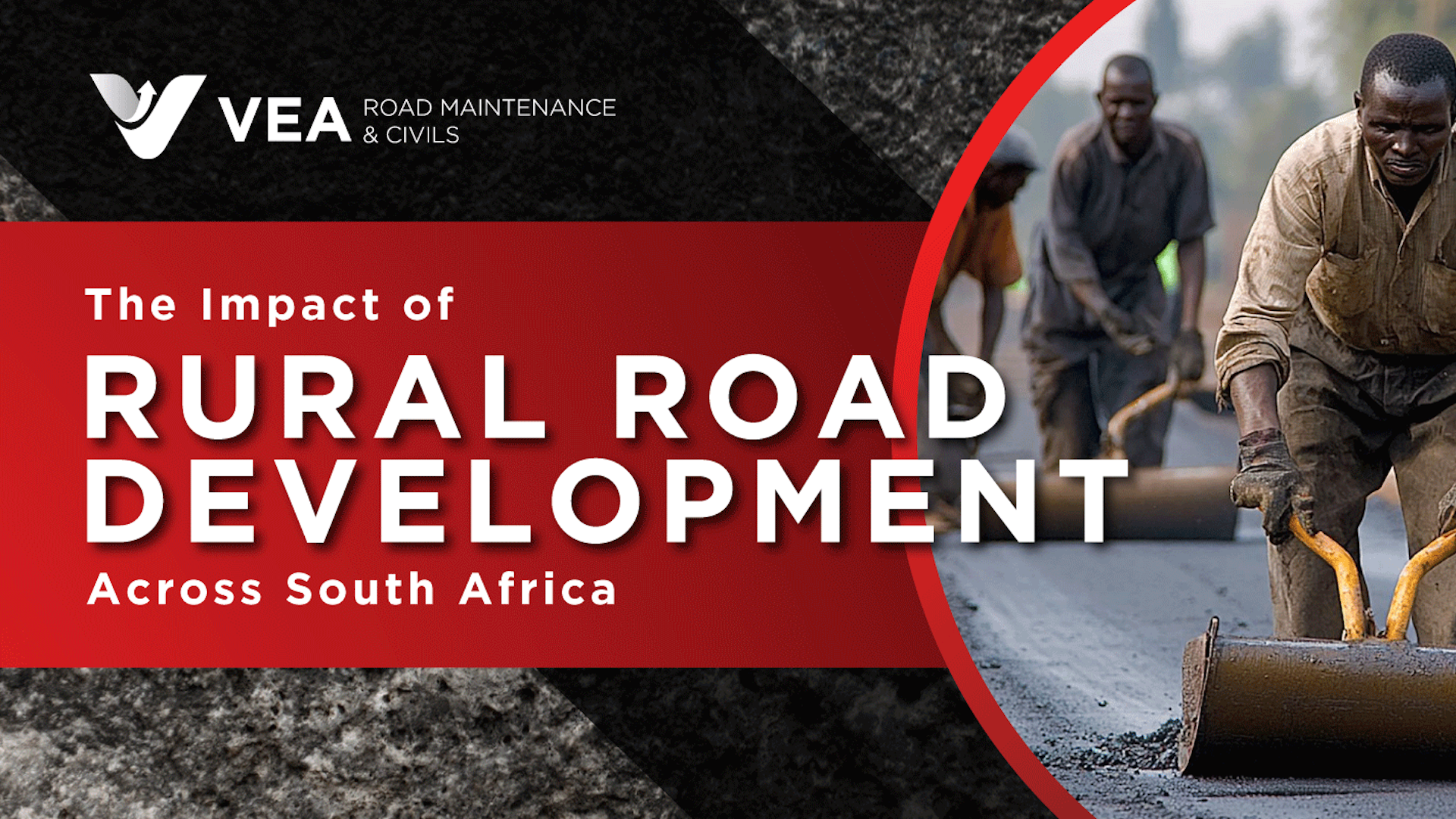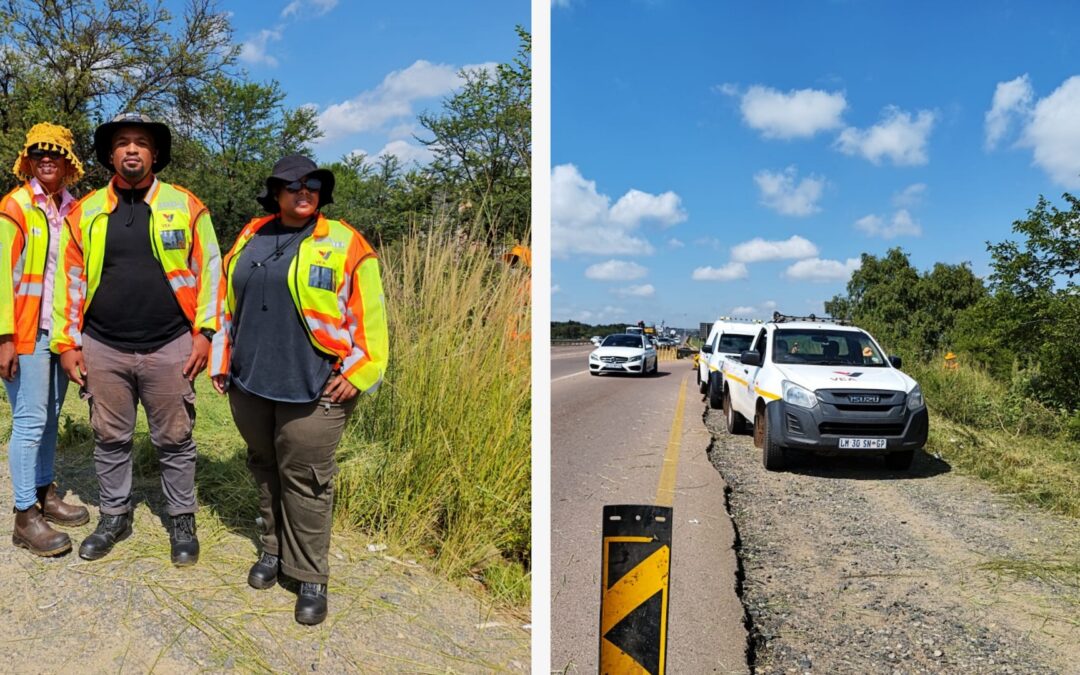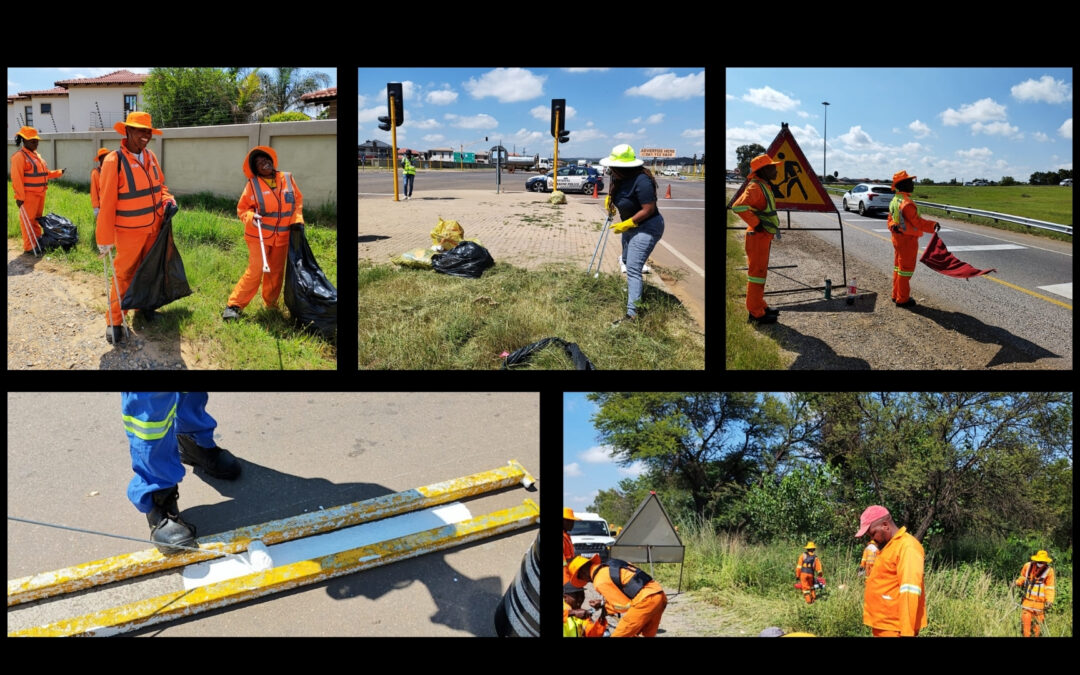Rural road development is a cornerstone of efforts to bridge the gap between urban and rural communities in South Africa. These roads serve as lifelines, enabling access to essential services, connecting isolated regions to economic opportunities, and improving overall quality of life. This case study explores the transformative impact of rural road construction, highlighting its role in fostering access to healthcare, education, and markets, and driving economic growth.
Paving the Way to Better Healthcare
In many rural areas, inadequate road infrastructure has long hindered access to healthcare services. Poorly maintained or non-existent roads often make it challenging for residents to reach clinics and hospitals, especially during adverse weather conditions. This limits timely access to medical care, resulting in avoidable health complications.
The construction of rural roads addresses these challenges by significantly reducing travel time to healthcare facilities. Ambulances can reach remote communities more quickly, improving emergency response times. Additionally, mobile health units provide regular services such as vaccinations and prenatal care. These improvements lead to better health outcomes and a higher standard of healthcare for rural populations.
Driving Student Success
Access to quality education is another critical area impacted by rural road development. In many remote areas, students face long and often unsafe journeys to reach schools, contributing to low enrolment and high dropout rates.
Newly constructed roads make it easier for students to attend school regularly by facilitating reliable transportation options. School bus services are introduced, ensuring safe and efficient travel for learners. As a result, more children can access education and improve overall academic performance in these communities.
Economic Growth and Market Access
Rural roads are catalysts for economic growth. Improved infrastructure allows farmers to transport their produce to markets more efficiently, reducing post-harvest losses and increasing profitability. Local businesses benefit from greater connectivity, opening opportunities for trade and investment.
Entrepreneurs are also more likely to invest in previously isolated areas once reliable road networks are established. This leads to the emergence of small-scale enterprises, shops, and service providers along these routes, creating jobs and stimulating local economies. Improved market access further integrates rural regions into national and global supply chains.
Uniting Communities, Empowering People
The social benefits of rural road development are equally significant. Better connectivity strengthens community ties, enabling families to visit relatives more frequently and participate in cultural events and festivals. These improvements foster a sense of unity and contribute to the overall well-being of rural communities.
Overcoming Challenges in Rural Road Development
While rural road construction brings substantial benefits, it is not without challenges. Weather conditions, funding constraints, and logistical complexities often delay projects. Effective community engagement is essential to ensuring that roads meet the specific needs of the populations they serve. Planning for maintenance and sustainability is also crucial to preserving the long-term benefits of these developments.
Bridging Communities, Unlocking Potential
Rural road development plays a pivotal role in improving access to healthcare, education, and markets while driving economic and social progress in South Africa. By connecting communities and reducing isolation, these projects contribute to a more inclusive and prosperous future. Investments in rural road infrastructure are investments in the people and potential of South Africa, highlighting the enduring value of strong and reliable connections.











